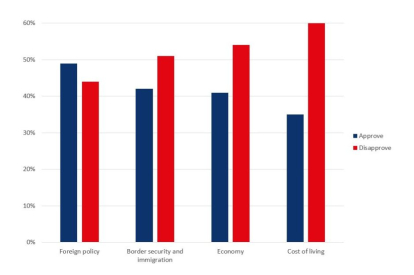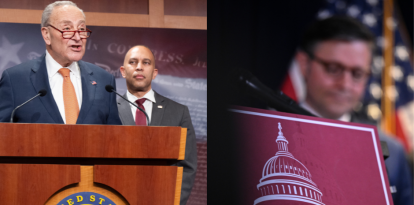One month before the election, the Hispanic community continues to move away from the Democratic Party
The gap in Hispanic support between the two parties has been cut in half in ten years: from 42 points in 2012 to 21 nowadays.

Victoria Pickering-
The Republican Party closes the gap with the Democratic Party in Hispanic vote intention. As the November 8 mid-term elections approach, more and more Hispanics disapprove of the Biden Administration's performance and believe it is time to put their trust in the GOP to change the direction of the country.
As reflected in the latest NBC News/Telemundo poll, Biden has the support of just 51% of Latinos to 45% who disapprove. That being said, there isn’t a large majority of Latinos who prefer the Democratic Party to control the House of Representatives. 54% opt for Democrats to lead the House of Representatives while 33% favor a Republican majority.
The 21 point difference is a reflection of Latino dissatisfaction with the Biden Administration and the Democratic Party, who sees the gap between themselves and their political rivals as progressively reduced. In the 2020 survey, the gap was at 26 points compared to 34% in 2018. In 2016 it was at 38% and in 2012 it was 42%.
The Biden Administration's failures
The Hispanic community believes that the current president's administration is failing on very important issues such as the cost of living, the economy, border security and immigration and foreign policy.
A pillar of any society is the economy. The Biden Administration's direction in this regard is approved by only 41% of Latinos compared to the 54% who disapprove. Associated with the economy is the high cost of living due to high inflation and prices, where six out of ten people (60%) rate the president and his administration negatively.

Considering that Hispanics are the majority immigrant community in the United States, 51% disapprove of the Biden Administration's work on border security and immigration, which is supported by only 42%. Another area in which the government fails is foreign policy, which barely reaches 49% support.
RECOMMENDATION





















